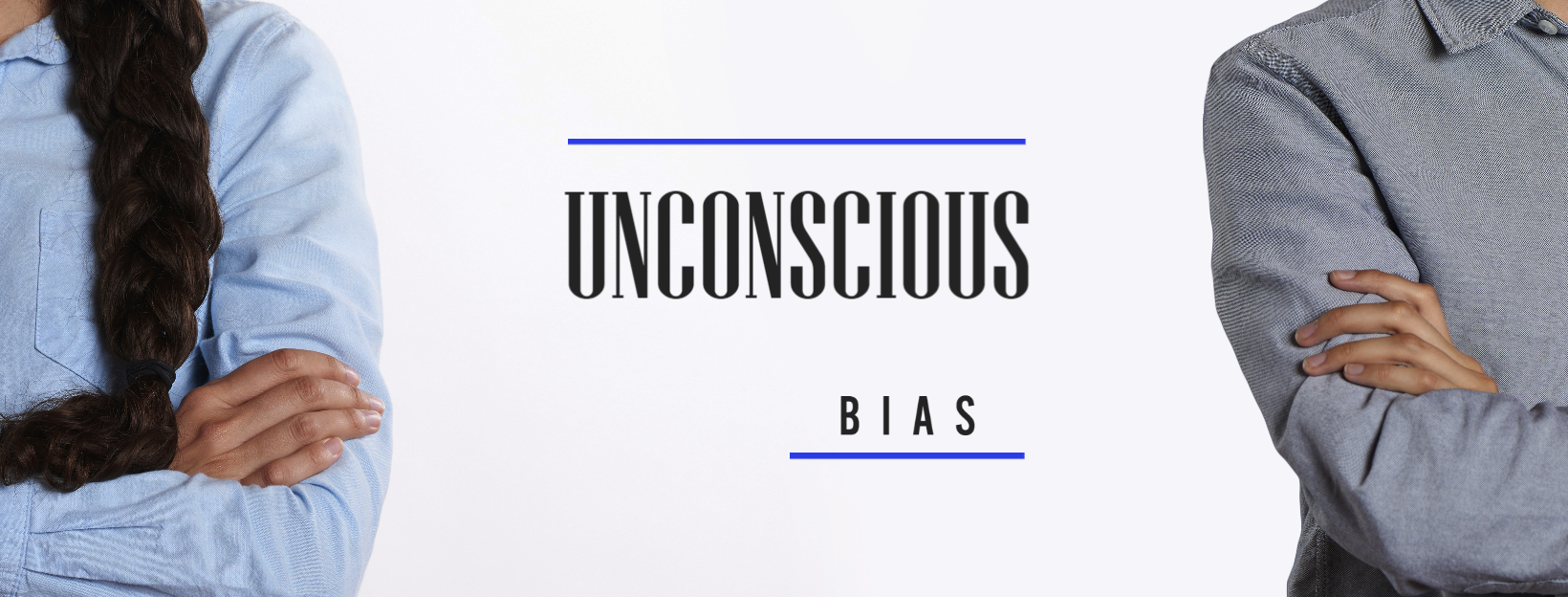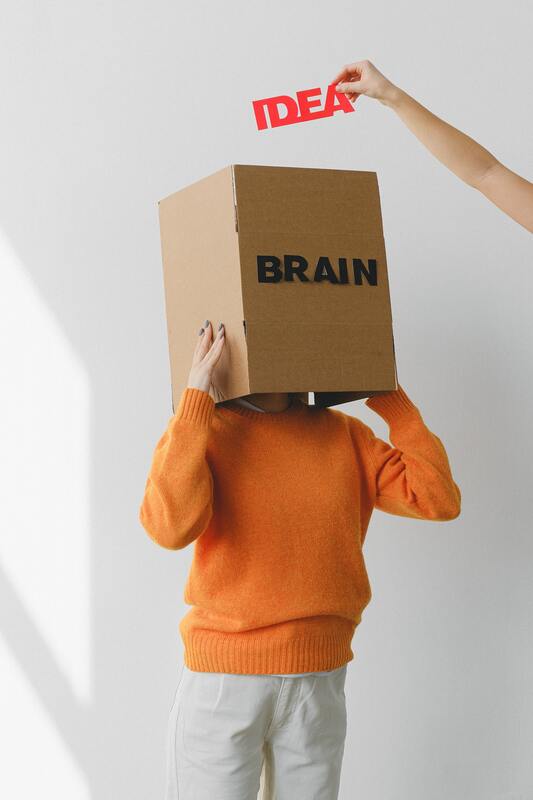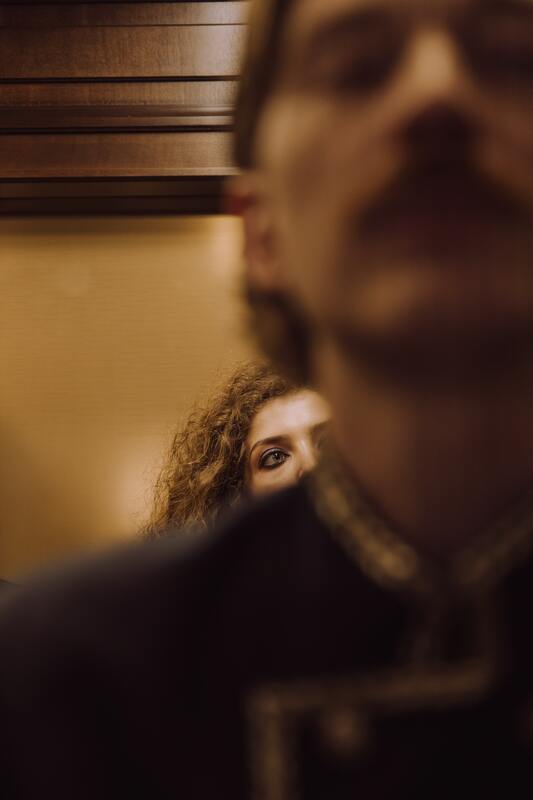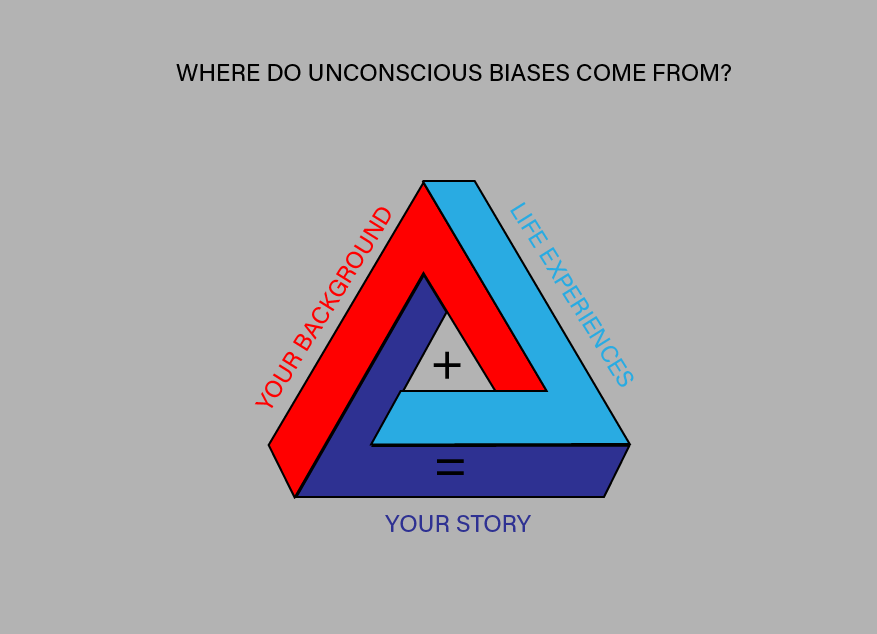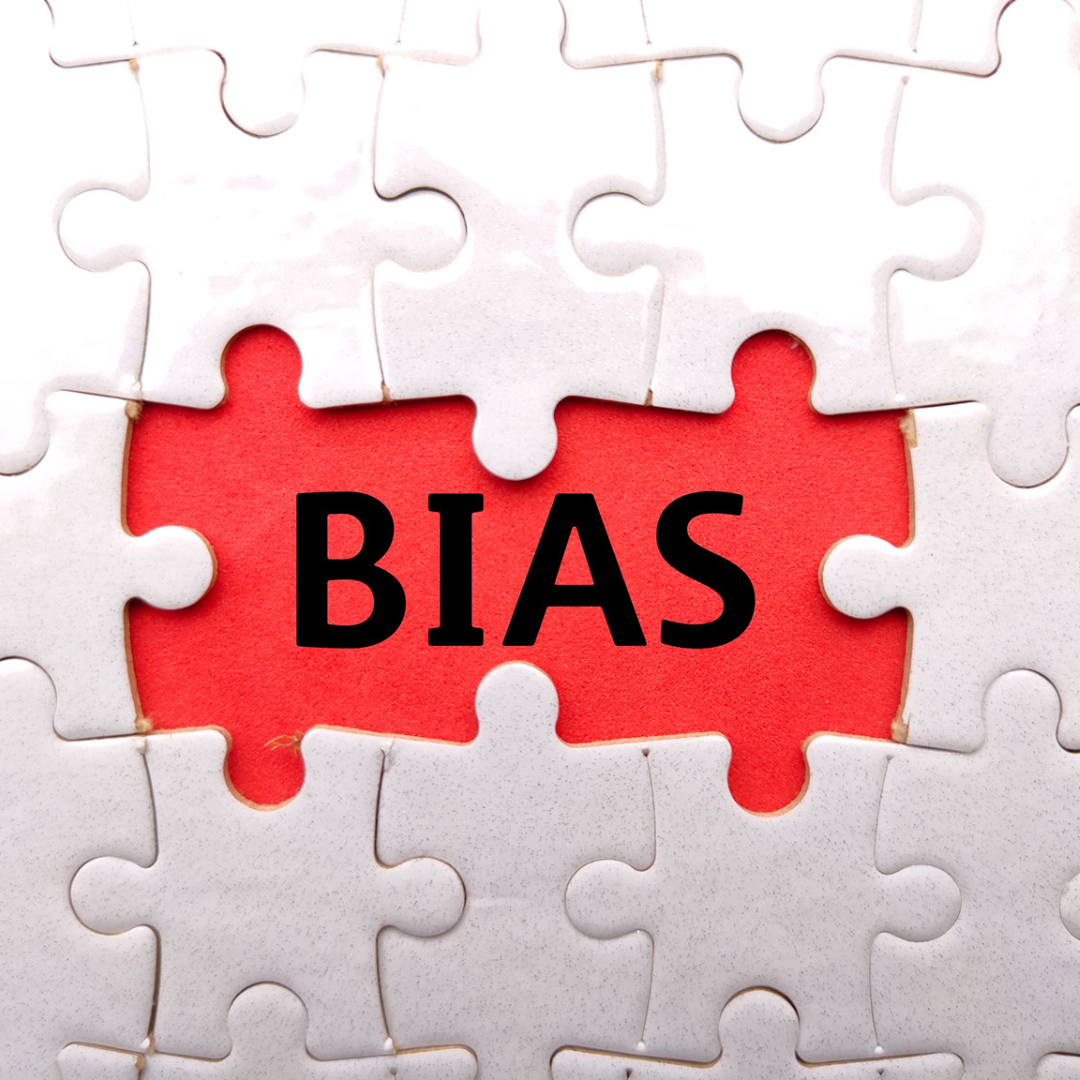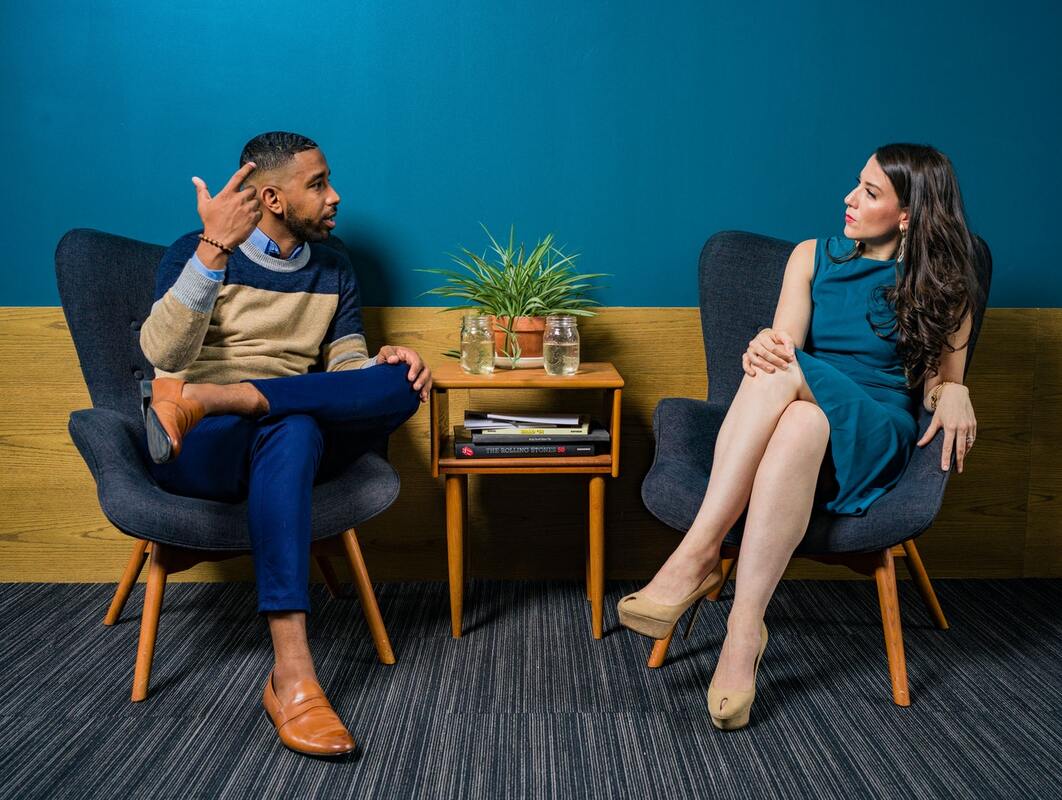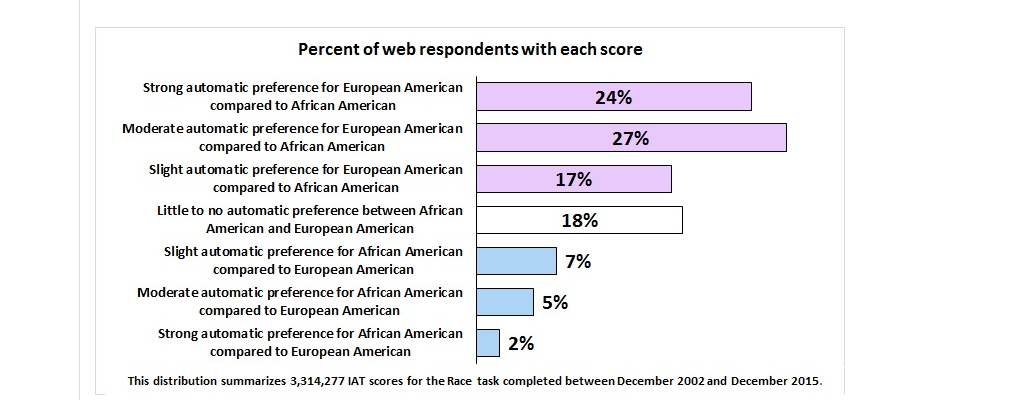|
Unconscious bias is normal. Read that again, then sit with it for a while. It can be quite a shock if you think you’re the kind of person who loves and accepts everyone. How many times have you said you’re not biased? I know I’ve said it many times because, in my heart of hearts, I truly believe it. Guess what? I’m wrong. So are any of you who think you’re unprejudiced. Unconscious bias is normal and unavoidable. The reality of that statement hit me like a ton of bricks when confronted with it during a recent Unconscious Bias presentation from the amazingly gifted Cassandra Cooper. Ms. Cooper is the manager of the UPMC Center for Engagement and Inclusion. It’s quite literally her job to help employees of this Western PA healthcare giant embrace and value diversity, equity, and inclusion. Families in the Pine Richland School District were fortunate enough to have her join us for an evening of education and sharing important truths. I attended with my 16-year-old son, and neither of us regretted the decision. Her workshop included the following objectives:
As a professional communicator, I knew this workshop was a must. I can’t be effective in my job if I am unwilling to tackle obstacles that can impede my progress. I wasn’t disappointed. I want to share with my readers the truths I learned because I believe tackling our unconscious biases makes us all better human beings. Prepare yourself for one of the most candid blogs I’ve ever written. What the heck is unconscious bias?Brains work in mysterious ways. One of the things your brain does involves registering unconscious biases and acting on them without so much as asking you first. That’s great, but what the heck is an unconscious bias? According to our wordy friend the dictionary, unconscious bias includes thoughts, feelings, or beliefs that you’re unaware of that influence your judgment. Your brain takes in 11 million bits of information every second. Of those millions of pieces of data, it can only process three or four things. Appearance is one of them. That’s why it’s scary to learn it takes your brain less than 30 seconds to register an opinion about someone based solely on how they look. “We all have these unconscious biases,” said Ms. Cooper during her recent presentation. “It’s a human thing.” Not all unconscious biases are unfavorable. Let me give you an example. Say you meet a group of people for the first time at a social event. These new folks look, talk, and act like you. Unconsciously, your brain registers that it’s OK to feel safe around them. That’s still bias, even if it’s favorable to the people with whom you’re interacting. How do people form biases?Now that you know what unconscious biases are, how do you form them? According to Ms. Cooper, our inner judgy-pants form biases based on several factors:
When do biases start?For most people, biases form at a very young age. They’re rooted in characteristics or preferences and even in our upbringing. Let’s say you’re raised in a home where racism is openly celebrated. Racial jokes are commonplace, and you’re fed daily with the notion that people of color are somehow less than you because of the color of their skin. Hearing unfair judgments like that can skew your view of Black, Indigenous, Persons of Color (BIPOC) later in life. I grew up in very white, very rural America. The only BIPOC I encountered when I was young was the foreign exchange students my school rarely hosted, and the Fresh Air Fund kid my neighbors took in for a few summers from Puerto Rico. Other than that, I was ignorant of the reality that everyone did not look, think, and act like me. That all changed when I enrolled in college. I was surrounded by people who challenged my unconscious biases and introduced me to a whole new world. I had a lot of uncomfortable interactions, but I confronted them and grew from them. I couldn’t help how I grew up, but I had complete control over whether I chose to expand my horizons. What’s the science behind unconscious biases?The good news is if you have unconscious biases, you’re normal. “We see people who are different than us as a threat,” said Ms. Cooper. “We gravitate toward what we know. We fear what is different.” Whether real or perceived, we all have triggers that make us more susceptible to unconscious bias, she said. Your background plus your life experiences equal your story. To understand the science behind unconscious biases, you must first recognize how your story impacts the way you see things, said Ms. Cooper. Once you have a handle on your story, only then can you start the difficult task of managing your behavior. When do my biases sneak out?It’s different for everyone. For me, it happens every time I’m faced with the difficult decision of getting on an elevator alone with a man I don’t know. Weird, right? Maybe some of the other women reading this are shaking their heads and saying, “Yes, ma’am, right there with you on that one!” What might seem like a commonsense safety decision can be an unconscious bias. Sure, women can and do need to worry about their safety (because that’s just the world we live in). Is it fair to assume every man we encounter is a threat? Nope. Some lovely gentlemen in the world would never think of harming any woman. Yet, I toss them right into that same category with all men who dare get onto an elevator with me while I’m alone. Why? From a very young age, it’s drilled into women’s heads to automatically mistrust any man they don’t know. Heck, I’m trained in Eagle Claw Kung Fu. Technically you should fear me, not the other way around. Still, every time I get on an elevator with a man I don’t know, my brain kicks into survival mode. It’s that unconscious bias sneaking out. Take a few minutes and think about how you act in certain situations. If we’re all honest about it, we can identify at least one area where our unconscious biases have snuck out and controlled how we’ve handled a situation. Right or wrong, it happens, and we must own it. Letting it all hang outI’m very aware of my unconscious bias toward strange men, so kudos to me for knowing it’s a problem. “Being able to admit you have biases and openly discussing them is the first step toward managing them,” said Ms. Cooper. “We have to be able to talk about it because it’s real.” Ms. Cooper was very candid about her unconscious biases during her presentation. Her willingness to share her struggles made others more comfortable having an open dialogue about theirs. “I thought the most powerful thing Cassie did last night was share her own biases, as it normalizes talking about them and reduces guilt and shame about talking about them,” said Dr. Allison Bashe, a Pine Richland parent (and licensed psychologist) who attended the workshop. “I also think it’s important to be aware of and name our own identities in both minority and majority statuses, as I think this complements the work on unconscious biases.” Honest conversations with our youthI mentioned earlier that my 16-year-old son attended the workshop with me. He didn’t have to come. As any of you with teenagers know, they have things to do and places to be (that do not involve hanging out with their lame-o parents). I am grateful my son chose to spend 90 minutes of his life listening to Ms. Cooper. Her presentation sparked an interesting discussion between us on the way home. My son is autistic. Diagnosed at age 3, he’s spent his entire life navigating the world of the neurotypical. Every therapy he’s had was designed to force him to assimilate to what society deems normalcy to be accepted. I’ve always thought it was a crock of horse manure, but that’s a blog rant for another time. My son has an Individualized Education Plan (IEP). All sorts of things get put into this plan, including a long history of his perceived behaviors by educators he’s encountered during his public education journey. Imagine what it would be like if everything you ever said or did was documented and presented to every person as part of your formal introduction. Let’s be frank: it would suck. Reading about things my son has done over the years out of frustration because of his communication deficits from autism has unfairly biased people against him. I’ve had many conversations with teachers shocked at how intelligent and attentive my son is because “that’s not what his IEP says about him.” Once they took the time to get to know my son, they realized he presents quite differently than his IEP suggests. My son and I had a very poignant, yet painful, discussion last night about how his disability triggers unconscious biases in others. It helped him realize that if people can unfairly judge him based on his autism, they can do the same to others simply because their skin color or gender identity differs from theirs. It’s a hard lesson for kids to learn, but one that shouldn’t be avoided. “Diversity exists, so we must help our kids navigate it,” said Ms. Cooper. How do you control your biases?Sadly, some people don’t. I’m sure we can all think of a time or two when we’ve encountered that person. You know the one I mean. They are loud and proud about their biases – race, gender, gender identity to name a few – and make zero effort to control them. If you’re like me, and you give two figs about not coming off like a bigoted and mean-spirited jagoff, there are things you can do to get your biases in check. Being aware of your unconscious biases is the first step to controlling them. “The world is no longer black and white, it’s evolving,” said Ms. Cooper. “Differences are uniquenesses, not deficits. It all comes down to who we want to be. Everyone is treated with dignity and respect. That’s who we want to be.” Ms. Cooper used a groundbreaking commercial from beer giant Heineken, aptly titled “Worlds Apart.” If you’ve never seen it, I highly suggest watching it. In just 4 minutes and 25 seconds, it perfectly depicts the hard work you and I must do if we’re serious about dragging our unconscious biases into the light of day. Only openness, not shamingHaving tough conversations is a contributing factor in managing our unconscious biases, said Ms. Cooper. “I like to say that we need to be comfortable at times being uncomfortable. Being able to talk about these things means growth. Valuing, supporting, and appreciating differences is the way to move forward, not pretending that they don’t exist.” Ms. Cooper said the key to confronting our own and others’ biases is being willing to do the “heart work” necessary to explore the roots of the behavior. Part of that involves creating a safe space where everyone feels comfortable sharing their beliefs and perceptions without judgment. Parents who attended the workshop agreed on the concept of creating a safe space for sharing as part of moving forward with the hard work of diversity, equity, and inclusion. “It’s really important not to attack or shame someone for sharing their biases, even when shared unintentionally or without knowledge of it being a bias, as I think it limits our ability to educate,” said Dr. Bashe. “In fact, I would meet this by sharing a bias we have to normalize it further. It helps no one if people are afraid to share these.” How do you assess your unconscious biases?Thankfully, Project Implicit makes it super easy to assess your unconscious biases with this insightful Implicit Association Test (IAT). Remember when I said earlier that I believe myself to be unbiased. Yeah, no. The IAT would have some strong arguments against my assertion. I already told you about my propensity for judging strange men in elevators. Apparently, my unconscious biases go beyond that weird fear. I was happy to discover my results indicate I have no automatic preference between Black people and White people. I still have some work to do in other areas and am prepared to have the hard conversations needed. There are 15 different IAT test categories from which to choose. You can take them all or just the ones where you might be concerned you have hidden biases lurking. Some other things you can do to assess and address your unconscious biases include:
AuthorShari Berg has known she wanted to be a writer since she was old enough to hold a pencil in her hand. She believes everyone has a story to tell, and it’s her job to discover it. Shari owns The Write Reflection, a Pittsburgh-based copywriting and content writing company that empowers small business owners to wield the power of words.
0 Comments
Your comment will be posted after it is approved.
Leave a Reply. |
Categories
All
Archives
April 2024
|

